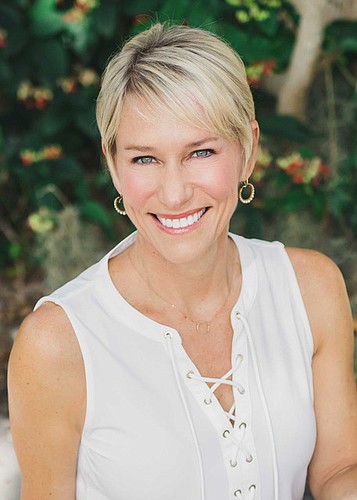- April 27, 2024
-
-
Loading

Loading

Julie Simons found herself once, like many Americans, attempting to start the new year healthy.
Simons joined a gym, one that required a six-month contract plus a monthly fee. She started the year strong, going to two advanced classes on her first day. Simons said she felt great — until the next morning, when soreness overtook her body. She could barely get out of bed, she said. She body ached for a week, and that wasn't all.
"The emotional pain lasted longer and hurt worse," Simons said.
Simons said she was mad at herself for not going to the gym, but she simply couldn't. This created a cycle: The more she berated herself, the less motivation she felt to exercise.
Now Simons, a clinical social worker in Lakewood Ranch, is offering tips to people currently working on their New Year's resolutions, in the hopes that they avoid the pitfalls Simons did not. Simons said people should "find their want," meaning they should deliberately focus on what they do want to do instead of what they don't. They should also be aware of why they want what they want, as intrinsic motivation is a powerful tool. Simons said a person's reason should be specific, and it should be written down and consulted in low moments.
Simons also said to view failure as nothing more than a data point. People should keep a log of their attempts and record what worked, what did not and what could have been done differently. This turns each attempt, success or failure, into a learning opportunity, to make sure things are always improving.
Diane McKay, a clinical psychologist in Sarasota, said the COVID-19 pandemic has created even more challenges than normal for people looking to change their routines. For one thing, schedules are all out of sorts. People might be spending more time at home to avoid large crowds, which means less time at the gym, etc. For those looking to exercise more, this can seem like a damper, but it does not have to be. Any progress at all is much better than no progress, McKay said. If all you can do for now is pushups at home and a jog around the block, that's great. Plus, the pandemic might cause you to eat out less and instead cook healthier meals in your own kitchen. There's a positive and negative to everything, McKay said. People just have to seek out the positives.
McKay also said people should take time to think about any obstacles that might get in the way of their goals. Being aware of obstacles can make overcoming them easier, McKay said, but people too often skip this part. When they run into challenges, they shut down.
"Our brains like routines," McKay said. "It uses less energy. Doing new stuff competes with the old stuff, and the old stuff is comfortable. This familiarity can prevent new learning. Even when the things you're learning are simple, you can struggle with them because they are new.
"We can't always explain why things are hard for us. This is why."
This is why McKay, like Simons, stresses the importance of embracing failure. Focus less on one big outcome and more on specific, smaller goals that will combine to achieve your bigger goal — "limit junk food consumption to one time per week" is more easily achievable than "lose weight" and will eventually lead to a similar conclusion when combined with other goals, such as "Do not consume meat on Mondays."
And if you mess up? That's OK. Just start again.
"Don't be so hard on yourself," McKay said. "Everyone is going to have struggles. Almost all goals take time. Just continue going forward."